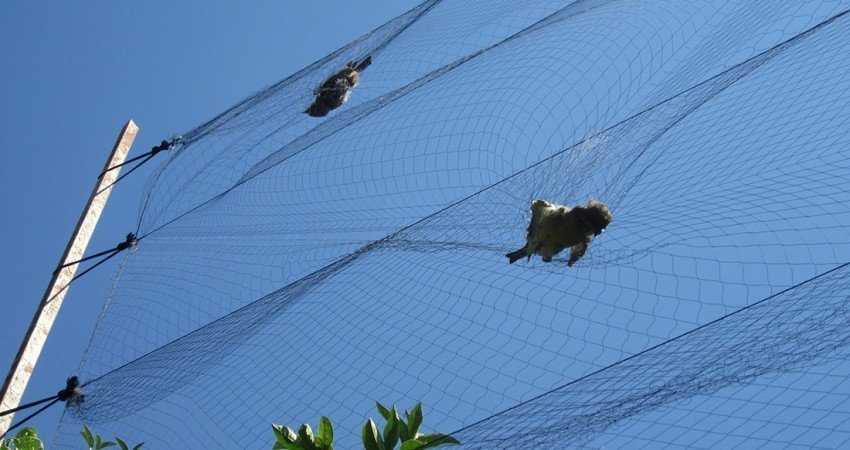BirdLife Cyprus’ latest report, on autumn 2019 trapping levels, highlights further reduction in the Sovereign Base Areas, with zero trapping activity recorded for the first time at the Cape Pyla trapping black spot.
In contrast, developments in the Republic continue to disappoint, as trapping levels have increased, the NGO said.
Big trappers continue more-or-less undisturbed and the Cyprus Police Anti-Poaching Unit has been closed down.
Up until a few years ago, the bird trapping situation was the complete opposite between the two jurisdictions. The SBA story highlights that the trapping problem can be solved, given the right approach and use of all available enforcement tools. However, the story in the Republic shows how easy it is to lose ground in the fight against this damaging practice.
BirdLife Cyprus has been keeping a close eye on illegal bird trapping for almost two decades, thanks to its systematic monitoring programme. Data analysis from the field survey carried out in autumn 2019 shows an 89% decrease in trapping levels with mist nets within the survey area (compared to baseline levels from 2002).
This positive news is mainly due to the progress achieved within the Dhekelia SBA over the last three years, reversing the ‘trapping hotspot’ status the jurisdiction once had. Close collaboration between SBA Police and environmental NGOs, covert surveillance with help from the RSPB Investigations team as well as a series of deterrent measures against illegal bird trapping activity have resulted in tangible results within the SBAs. In fact, autumn 2019 was also the first survey season where zero activity was recorded at Cape Pyla, formerly a major trapping black spot within the Dhekelia SBA.
While trapping levels remain low overall, developments in the Republic last autumn were not encouraging. Trapping activity increased in autumn 2019 for a second consecutive year within the Republic areas, undermining the progress that had been achieved up until 2017.
This is a worrying outcome that BirdLife Cyprus believes is associated with the reduced enforcement action – especially against large organized trapping sites – by the Cyprus Police Anti-Poaching Unit (APU). The engagement of the Cyprus Police APU against bird trapping had dropped significantly over the last two years, while the final ‘strike’ to this previously effective Anti-Poaching Unit came last November, when the Cyprus Police decided to close it down entirely, claiming “poor results”. BirdLife Cyprus strongly disagrees with the closure of the Cyprus Police Anti-Poaching Unit, especially as it played a key role in tackling large organized trappers, who now continue their operations largely undisturbed.
BirdLife Cyprus acknowledges enforcement action taken by the Game and Fauna Service (GFS) in the Republic – during autumn 2019 the GFS imposed more on-the-spot-fines for illegal bird trapping than in previous years. This has undoubtedly acted as a deterrent for trappers. However, indicative numbers provided by the GFS show that the higher the fine, the less chance there is of it being paid by the offender. As a result, offenders are led to the courts for prosecution, where they often receive much lower fines. This is worrying, as it undermines the sustainability of the on-the-spot fine system.
Martin Hellicar, Director of BirdLife Cyprus, said:“Seeing a trapping blackspot like Cape Pyla being transformed into a safe area for birds in a relatively short space of time is encouraging and proof of the effectiveness of the work being done within the SBAs. It is high time that the competent authorities of the Republic of Cyprus adopted a similar approach. Reinstating and re-enforcing the Cyprus Police Anti-Poaching Unit would be a good start on the road to determined enforcement action against big, organized trappers.”
Bird trapping with mist nets and limesticks is a damaging and non-selective practice that affects over 150 species of birds, mostly migratory. The main killing season is autumn, when the law-breaking trappers are after Blackcaps Sylvia atricapilla to be sold as illegal but highly lucrative ambelopoulia ‘delicacies’. Lack of enforcement against the illegal sale of trapped birds in restaurants and against big, organised trappers remain persistent problems, centered in the Republic.






